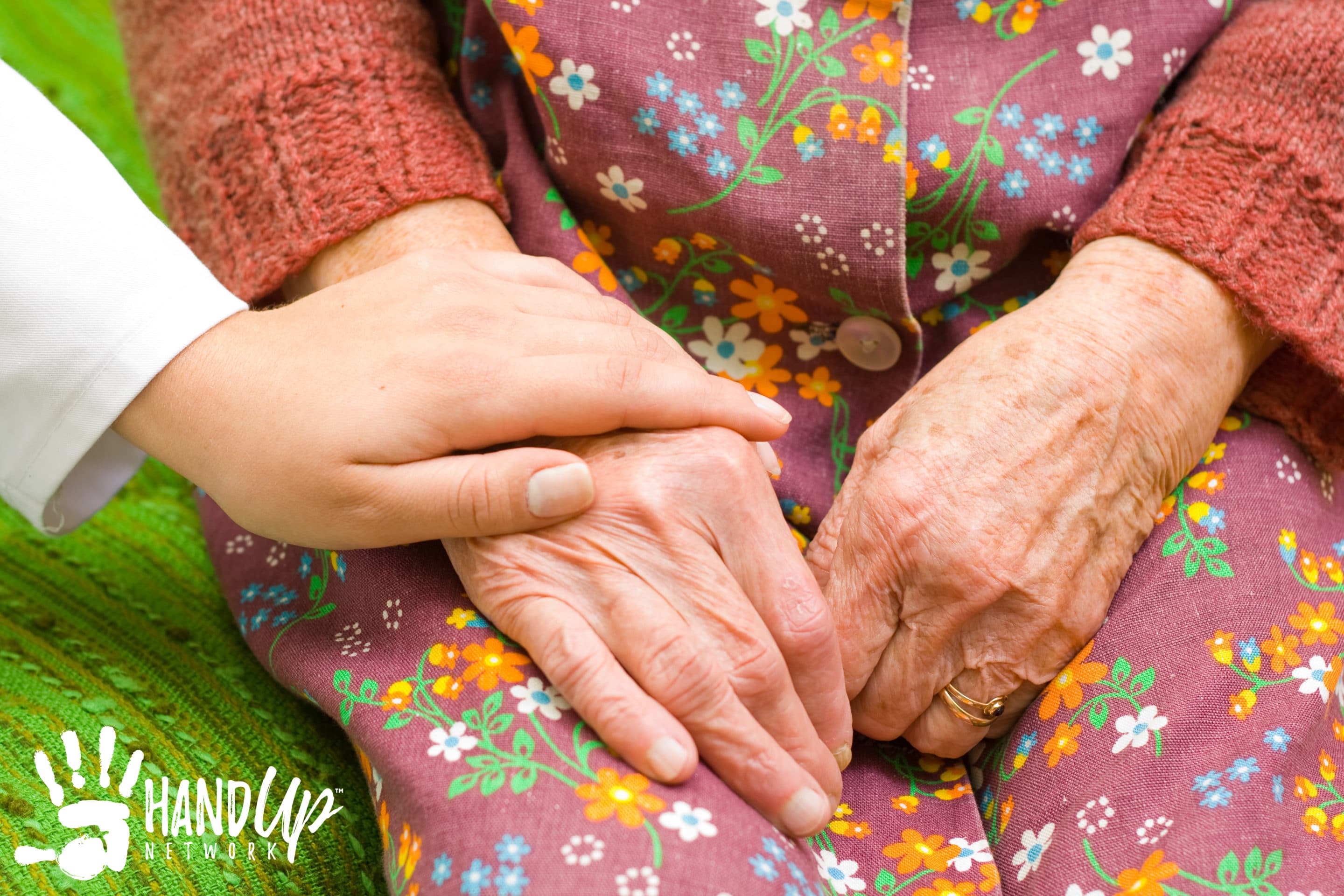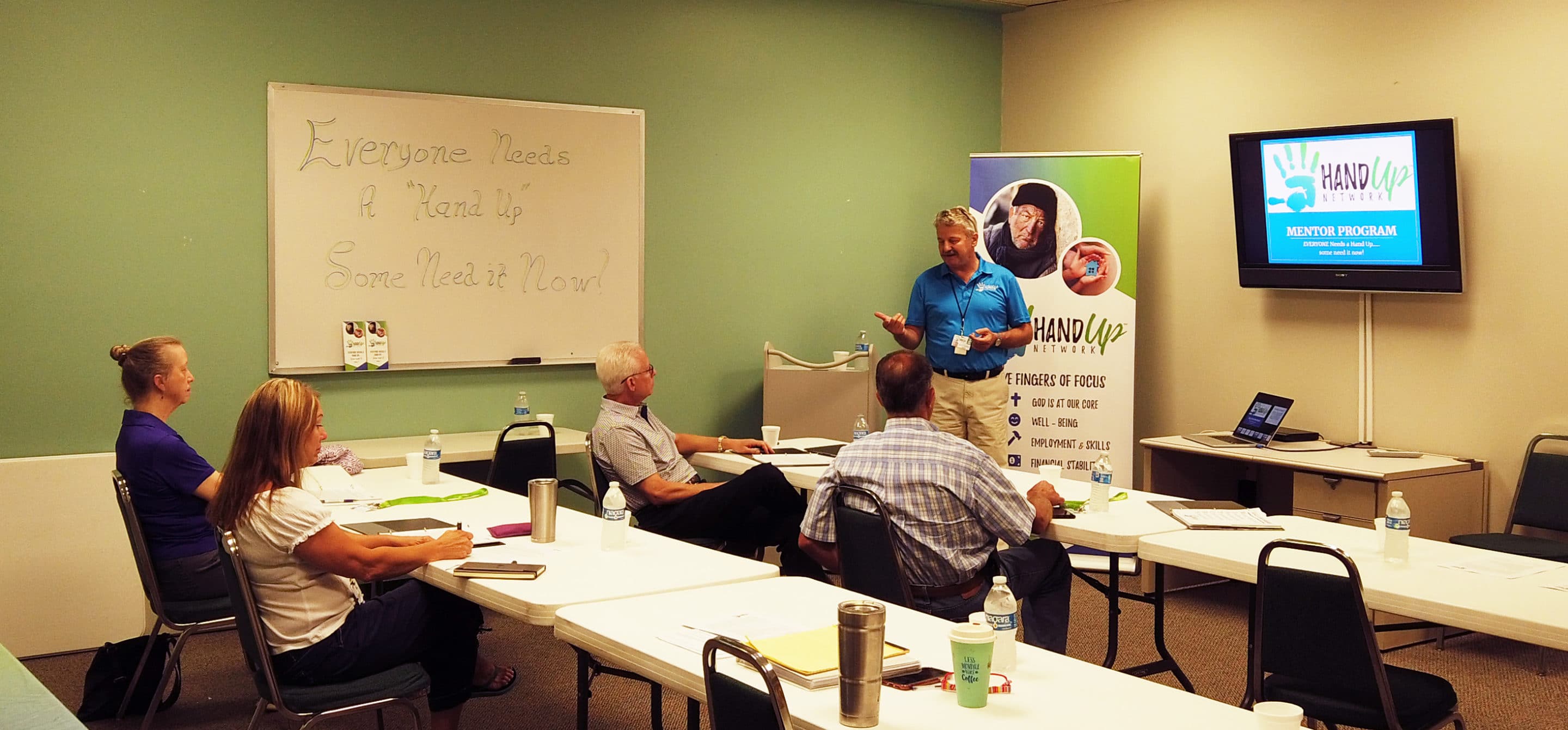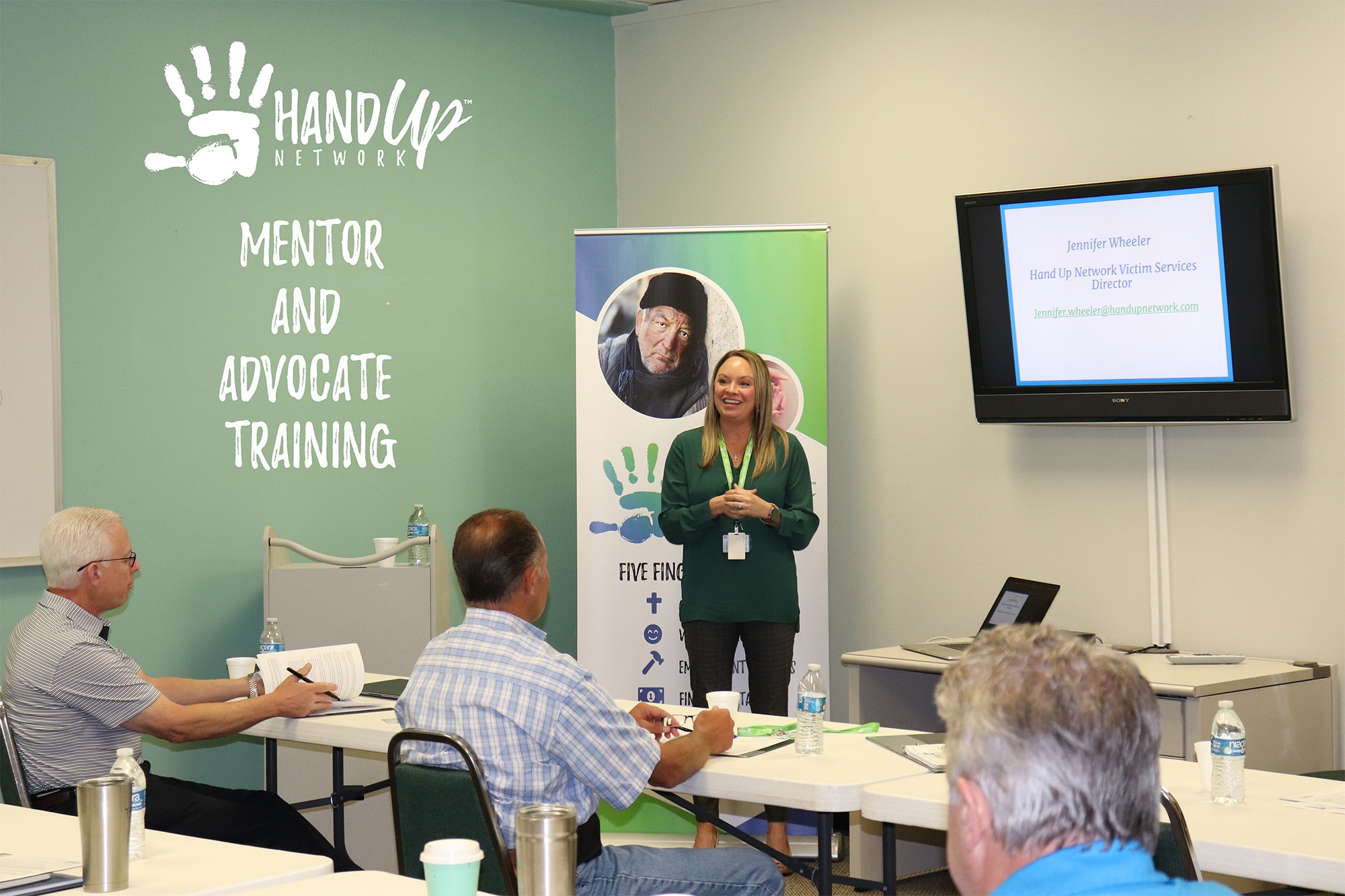Well-being
![]()
Physical
Level 1 volunteers with will serve as mentors in other areas of clients’ lives. Level 2 volunteers with medical experience can also be used to provide training to staff and other volunteers basic well-being and nutrition practices
Mental
Level 2 volunteers with experience in mental health treatment will be able to offer formal support to HUN clients as well as serve as mentors in other areas of clients’ lives. Level 2 volunteers can also be used to provide training to staff and other volunteers on how to recognize the signs of mental health and its effects on a client’s life. Level 3 volunteers will serve as mentors to HUN clients.
Marriage
Level 2 volunteers with a background in counseling can be available to assist clients with their needs directly through HUN or for clients to be referred to for counseling. Volunteers can also provide training to staff and volunteers to be able to recognize concerning behavior.
Cooking on a Budget
Level 2 volunteers with a background in nutrition can advise HUN regarding food safety instruction and recipes, may teach the workshop or may offer to help HUN clients (in coordination with their mentor) with developing menus based on their families’ tastes.
Grocery Shopping on a Budget
Level 2 volunteers with a background in nutrition can advise HUN regarding best practices to teach, may teach the workshop or may offer to help HUN clients (in coordination with their mentor) with developing a personal grocery shopping strategy.
Diabetes Education
Level 2 volunteers with a background in nutrition can advise HUN regarding best practices to teach, may teach the workshop or may offer to help HUN clients (in coordination with their mentor) with developing a personal plan for controlling diabetes in their lives.
Parenting
Level 2 volunteers with a background in parenting can be available to primarily mentor adults with children or be on call for specific instances that may require an intervention. Volunteers can also provide training to staff and volunteers to be able to recognize concerning behavior.
Succeeding with a Criminal Background
Level 2 volunteers with a background in Criminal Justice can advise HUN regarding best practices to teach, may teach the workshop or may offer to help HUN clients (in coordination with their mentor) with developing a personal life plan.
Adult Education/GED prep/ESL
Level 1 volunteers and staff who work in these programs would be trained directly with the Literacy Council of Tyler.
Financial Stability
![]()
Budgeting
Level 2 volunteers can help provide instruction for the budgeting workshop as well as provide individualized assistance to HUN clients who are still struggling with their personal budget after the workshop.
Insurance
Level 2 volunteers with a background in insurance can advise HUN regarding best practices to teach, may teach the workshop or may offer their services to clients who wish to gather additional information on insurance.
Financial Overview
Level 2 volunteers who have a financial background can present the overview curriculum and general volunteers to help facilitate the class
Credit and Predatory Lending
Level 2 volunteers with experience in the financial industry can help HUN clients identify alternatives to predatory lending agencies that can help them build their credit and their ability to deal with financial challenges. They can lead the Credit and Predatory Lending Workshops and also be available to assist clients with specific needs outside of classroom time.
Job Readiness
![]()
Job Readiness Overview
Level 2 volunteers will be able to conduct mock interviews, share their own life story and teach sections of the Job Readiness Overview course and follow-up workshops. They may also be available to follow-up with students who need additional support.
Interviewing
Level 2 volunteers with a background in Human Resources can advise HUN regarding best practices to teach, may teach the workshop or may offer their services to clients who wish to continue building their interview skills.
Intro to Computers
Level 2 volunteers could teach basic/introductions skills, supervise Computer Lab during set times through the week, conduct client assessments and make recommendations for next-level classes.
Resumes
Level 2 volunteers can help moderate the workshop and also provide testimonials about the importance of a resume.
Internet Job Search
Level 2 volunteers with a background in Human Resources can advise HUN regarding best practices to teach, may teach the workshop or may offer their services to clients who may need additional support.
Workplace Etiquette
Level 2 volunteers with a background in Human Resources can advise HUN regarding best practices to teach, may teach the workshop or may offer their services to clients who wish to gather additional information on insurance.
Career Pathways (with LCOT)
Level 2 volunteers with a background in Human Resources can advise HUN regarding best practices to teach, may teach the workshop or may offer their services to clients who wish to gather additional information on insurance.
Computer Skills Course
Level 2 volunteers will be able to conduct classes and oversee the Open Lab hours.
Hit the Streets (in development)
Level 2 volunteers with a background in Human Resources can advise HUN regarding best practices for making a good impression on prospective employers and practice introduction and interviewing techniques
Spiritual Life
![]()
Ambassadors
Level 1 volunteers will be trained in the Ambassador program to connect Hand Up Network clients with their local church.
Prayer Room
Level 3 volunteers and church groups will pray for HUN ministry and clients. They can follow-up with their prayers through written cards and connecting with clients.
Weekly Text Club
Spiritually mature (Level 2) volunteers would help develop the content that would be sent out to clients. Volunteers would meet 1-2 times a month to plan ahead for the next month.
Support Systems
![]()
Identifying Support Systems
Level 1 volunteers will be trained to help clients evaluate their lives, find positive support systems and develop plans for improving their support team.

Mentoring
![]()
Level 1 Role – Trained volunteer “Life Mentors” (LM/LMs) for clients of Hand Up Network (HUN).
In this role, LMs should meet regularly with clients who have made the decision to change their own lives. These clients may have criminal or homeless backgrounds but have been through a week-long introduction phase setting the framework and providing motivation and commitment for working with HUN. Mentoring includes addressing all five areas of focus in HUN (Well-Being; Work and Education; Finances; Support Systems; Spiritual) with the client. Understanding client giftings, aptitude and likes will allow priorities to be set for the development of a life plan for the client and the LM becomes a key primary Support System influence and mentor as the plan is implemented.
Life Mentors should have a mature view of life with a good understanding of the following (no particular order):
Long term view of life circumstances and the recognition that redemption of past mistakes or patterns is possible
Understand that each individual is uniquely gifted and talented
Noticing common themes and words probably indicate either unresolved issues or strong desires
“Success” may look quite different for each individual and that is OK

The goals of life should not be set by external pressures such as culture but by understanding what an individual is gifted in and has an aptitude for
HUN clients may take a while to disclose important facts and history so patience is required
Understand the importance of setting goals
Good mentoring involves a lot of listening and noticing so creating an environment of openness is very important (initial openness of their own life story with the client)
Being willing to challenge a client while at the same time accepting them as they are is an important skill that may be hard to balance at times!
Victim Services
![]()
Level 1 Role – Victim Services Advocate
A Victim Services Advocate is on call and works with Victims by coming alongside Law Enforcement at the point of Victimization. The goal is to ensure that a Victim has someone to provide comfort and guidance through the Medical, Judicial, and Restoration process. Once the Victim is stabilized, the Advocate works to begin the restoration process while also helping to navigate the judicial process. The Hand Up Network Mentoring Program will begin to help the Victim at a point in time when the Victim is ready to begin the journey to the life they aspire to achieve.
It is the goal of Hand Up Network to ensure that a Victim doesn’t drop through the cracks and get lost in what can be an overwhelming journey without the proper support.
Advocates are on call to respond alongside Law Enforcement, medical and Justice System partners to provide immediate or ongoing crisis intervention.
The Role of the Advocate is to be a calming voice during a time of chaos. They provide information and support to the Victim.
An Advocate stays with the Victim through the Medical and Judicial process, not to execute these services, but to ensure the Victim is aware of the many steps, challenges, and resources available to help in the journey.
It is not the role of the Advocate to make decisions for the Victim, but to be a sounding board and source of trustworthy information.

Must be 21 Years of Age or older
Criminal Background Check Required
Advocates are required to complete local, state and national training and certifications for advocacy and is provided by Hand Up Network.
Advocate on behalf of victims and survivors within the criminal justice system.
Time Requirements can be flexible for dates but when on call, the Advocate must be available at a moments notice.
An ideal Advocate has a passion to serve and the capacity to remain calm during very difficult situations.
The Advocate is a warm handoff to and from Medical, Judicial, and Law Enforcement Partners. Our role is to support the Victim and provide these partners with a reliable partner to help aid the Victim through the process.
Provide information and referral services to victims/loved ones regarding other community and governmental agencies, counselors, legal services, medical services, support groups and shelters.
Sign Up to Volunteer